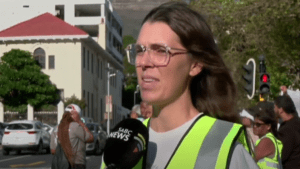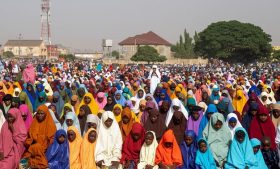Closing arguments are expected to continue in the High Court in Cape Town on Tuesday in the reopened inquest into the death of Muslim cleric, Imam Abdullah Haron.
Last year, the Inquest Court heard evidence from witnesses including former detainees, family, pathologists, and a trajectory and aeronautical engineer.
SABC News Vanessa Poonah reports:
Haron was arrested in May 1969 and detained in Cape Town. He was found dead in his cell at the Maitland police station after being in detention for 123 days.
The original inquest found that no one could be held responsible for Haron’s death. His family members rejected the finding saying they believed that the security police tortured and killed him.
Seeking closure and justice
Haron’s family says they believe the reopening of the inquest into his death can bring out the true facts surrounding the circumstances of his death.
One of Haron’s daughters, Fatima Haron-Masoet, says the inquest will also provide hope for future cases that involve political prisoners in South Africa who died while they were in detention during apartheid.
Michel Assure, the sister of the late anti-apartheid struggle icon Ashley Kriel, says she hopes the re-opened inquest will give the family the justice they deserve.
Assure says she is among the activists that will support the Haron family.
Meanwhile, Nkosinathi Biko, the son of anti-apartheid stalwart and activist Steve Biko, says the reopening of the inquest into Haron’s death will help to re-instill a culture of accountability in South African society.






